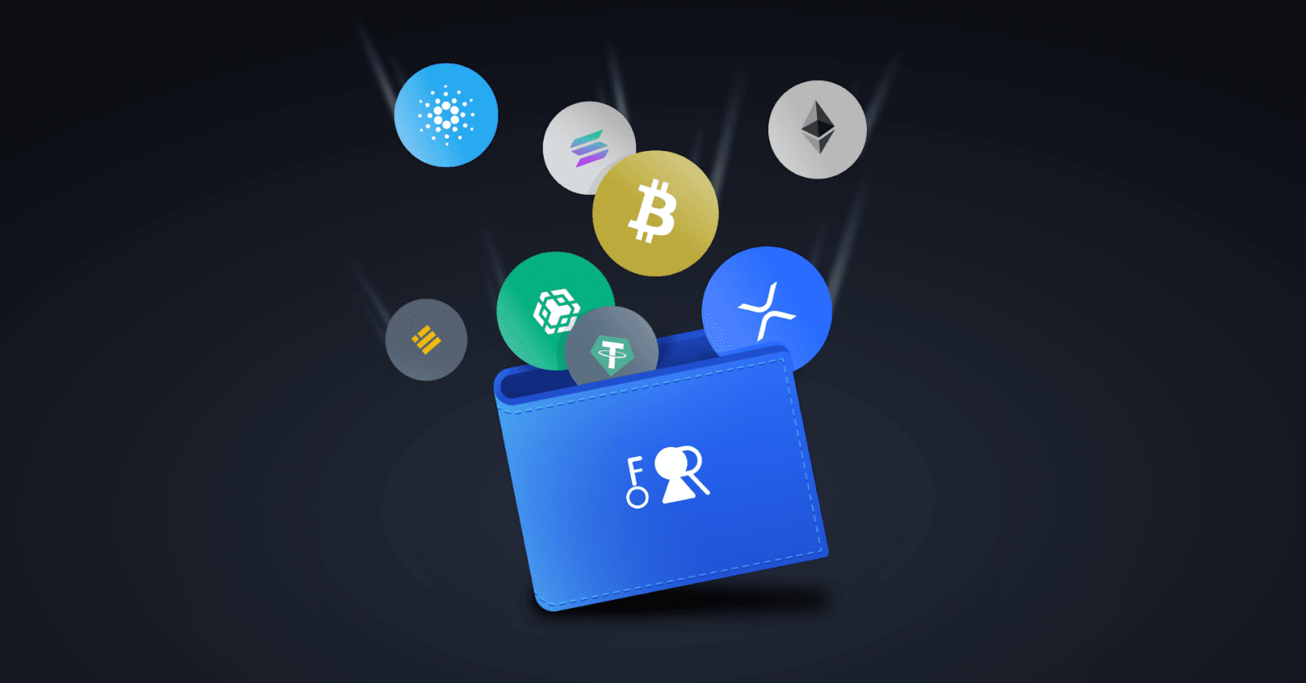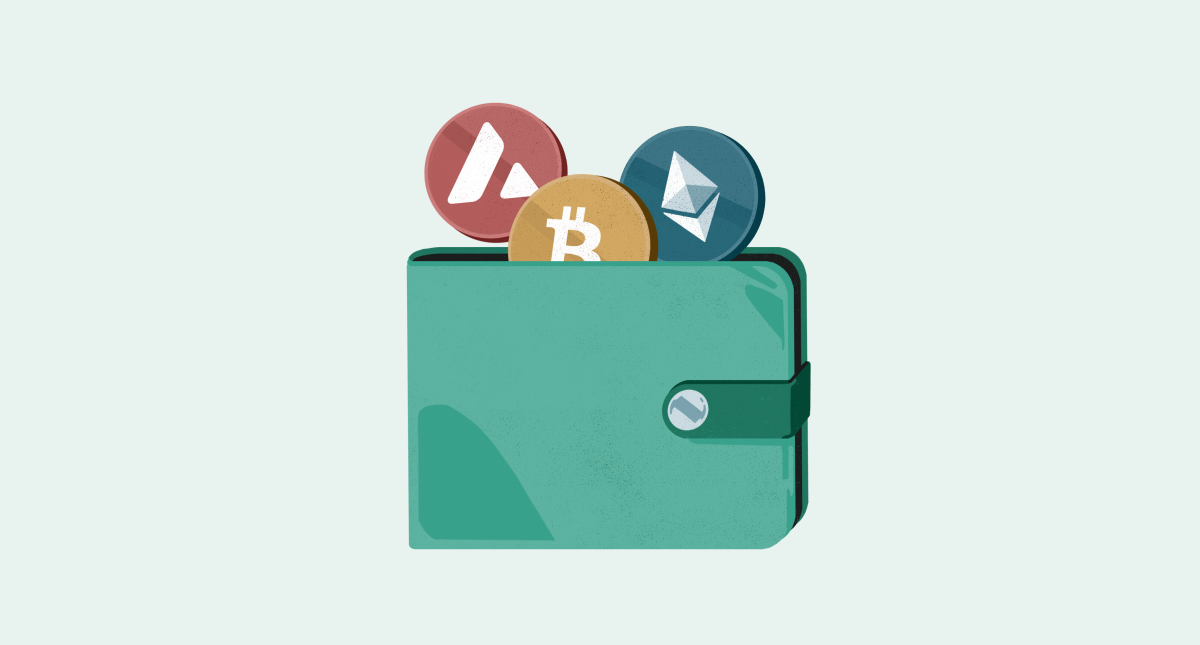Crypto Wallet | In the exciting realm of cryptocurrencies, one crucial aspect for both enthusiasts and beginners is understanding crypto wallets and their significance. These digital tools provide a secure way to store, send, and receive cryptocurrencies, safeguarding your investments. Let’s delve into this topic and shed light on some of the best crypto wallets available for securely storing your digital assets.

Understanding Crypto Wallet
Crypto wallets, also known as cryptocurrency wallets, are digital tools that enable you to securely store and manage your cryptocurrencies. Unlike traditional wallets that hold physical cash, crypto wallets store digital assets such as Bitcoin, Ethereum, and other supported cryptocurrencies.
When you own cryptocurrencies, what you possess is a private key—a unique digital code that grants access to your funds. Crypto wallets store and manage these private keys on your behalf. They provide a secure environment for you to interact with the blockchain network, check balances, and initiate transactions.
<Crypto Casino – What Are Crypto Casinos?>
Types of Crypto Wallets

There are various types of crypto wallets, each offering different levels of security and convenience. Let’s explore some of the common types:
- Hardware Wallets (Cold Wallets): These physical devices, resembling USB drives, store your private keys offline. By keeping your keys isolated from internet-connected devices, they provide an extra layer of security. Examples include Ledger Nano S and Trezor.
- Software Wallets (Hot Wallets): These are applications installed on your computer or mobile device. Software wallets can be further categorized into:a. Desktop Wallets: Installed on your computer, they offer full control over your private keys. Popular options include Exodus and Atomic Wallet.b. Mobile Wallets: These apps downloaded to your smartphone provide convenience and on-the-go access to your cryptocurrencies. Trust Wallet and Mycelium are well-known mobile wallet options.c. Online Wallets: Also called web wallets, these operate on cloud-based platforms accessible from any internet-connected device. They offer convenience but may be less secure. Examples include Coinbase Wallet and MyEtherWallet.d. Paper Wallets: This offline storage option involves printing your private keys or seed phrase on paper. It offers a high level of security against online threats but requires careful handling.e. Custodial Wallets: Managed by third-party service providers like exchanges, these wallets hold your private keys on your behalf. They provide ease of use but are less secure as you rely on the custodian’s security measures.
Factors to Consider When Choosing a Crypto Wallet

When selecting a crypto wallet, several factors come into play:
- Security: Look for wallets prioritizing security features like two-factor authentication (2FA), encryption, and multi-signature functionality. Hardware wallets are considered the most secure option.
- User-Friendliness: Consider the wallet’s user interface and ease of use, particularly if you’re a beginner navigating the crypto space.
- Supported Cryptocurrencies: Ensure the wallet supports the cryptocurrencies you intend to store, as not all wallets are compatible with every digital asset.
- Development Team: Research the wallet’s development team and community to gauge their reputation and level of activity. A reputable team is more likely to provide regular updates and address security vulnerabilities.
- Backup and Recovery: Check if the wallet offers a backup and recovery process to safeguard your funds. It should provide options to back up your private keys or seed phrase, allowing you to restore your wallet in case of loss or device failure.
<Crypto – What is crypto?Is crypto safe?>
Best Crypto Wallets for Securely Storing Your Crypto

Now that we understand crypto wallets and the different types available, let’s explore some of the top crypto wallets in the market:
- Ledger Nano S: A popular hardware wallet known for robust security features, Ledger Nano S supports a wide range of cryptocurrencies. It offers a user-friendly interface, offline storage, and backup options.
- Trezor: Another leading hardware wallet, Trezor prioritizes security with advanced features like password managers and 2FA. It supports multiple cryptocurrencies and provides a sleek design and intuitive interface.
- Exodus: A desktop wallet supporting various cryptocurrencies, Exodus boasts a visually appealing interface and a built-in exchange feature for seamless cryptocurrency swaps. It also includes a convenient portfolio tracker.
- Trust Wallet: Acquired by Binance, Trust Wallet is a popular mobile wallet supporting numerous tokens. With a simple and intuitive user experience, it offers additional features like staking and decentralized app (DApp) browsing capabilities.
- MyEtherWallet (MEW): Designed specifically for Ethereum and ERC-20 tokens, MyEtherWallet is a web wallet that enables users to generate and manage wallets without an account. It integrates with hardware wallets and offers features like token swaps and NFT support.
Remember to conduct your own research and choose the wallet that best suits your specific needs and preferences.
In Conclusion
Crypto wallets play a vital role in the world of cryptocurrencies, providing secure storage and transaction capabilities. Understanding the different types of wallets and their features is crucial for safeguarding your digital assets. By considering factors like security, user-friendliness, supported cryptocurrencies, development team reputation, and backup options, you can make informed decisions when selecting a crypto wallet. Prioritize security and regularly update your wallet software to stay protected in this ever-evolving crypto landscape.
FAQs
Can I use one crypto wallet for multiple cryptocurrencies?
Yes, some wallets support multiple cryptocurrencies, while others are specific to certain tokens or blockchains. Choose a wallet compatible with the cryptocurrencies you want to store.
What if I lose my crypto wallet or forget my private key?
Losing your wallet or forgetting your private key can result in permanent loss of funds. Most wallets provide a seed phrase for wallet recovery. Store your seed phrase securely to regain access to your wallet if needed.
Are online wallets safe for storing cryptocurrencies?
Online wallets offer convenience but are generally considered less secure. Opt for reputable wallet providers, enable 2FA, and consider hardware wallets for larger amounts or long-term storage.
<Crypto Casino – Top Recommended Crypto Gambling Site for 2023>



